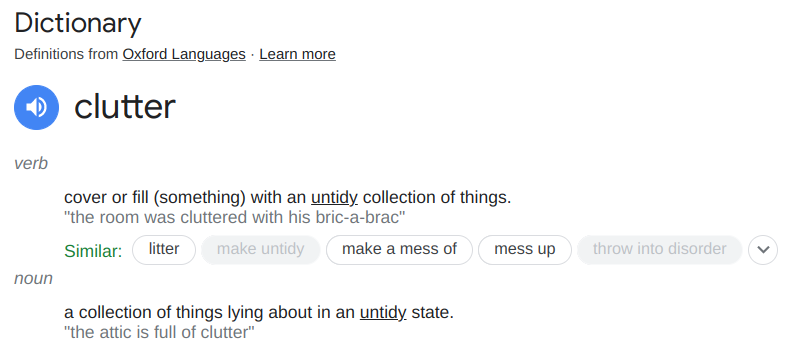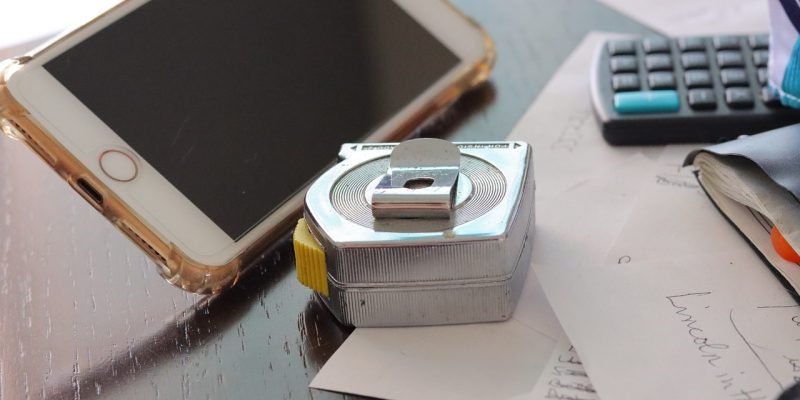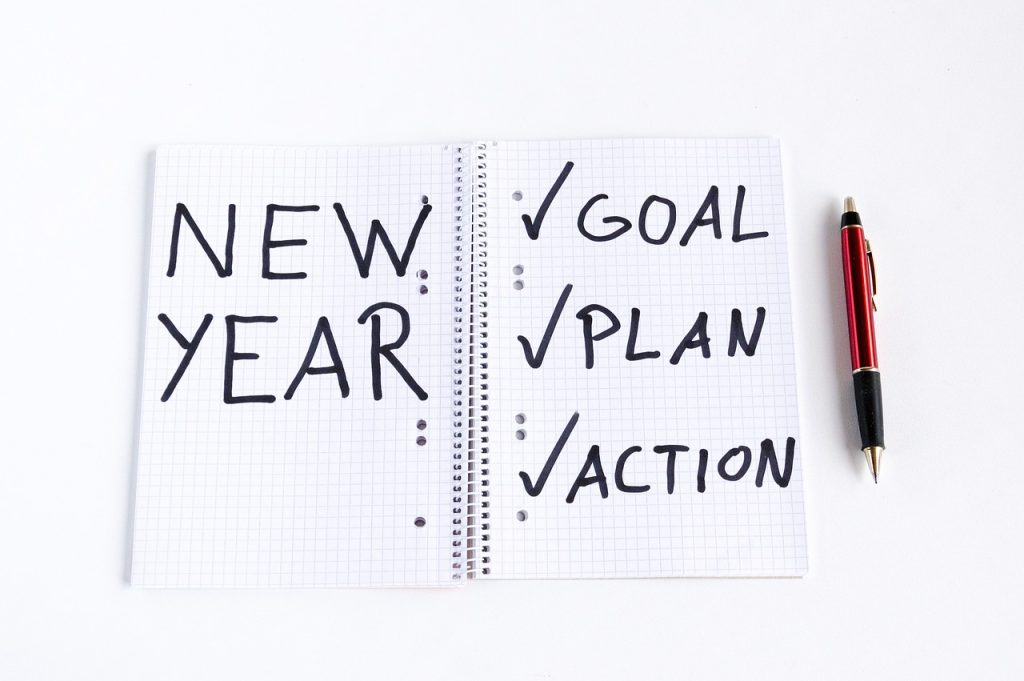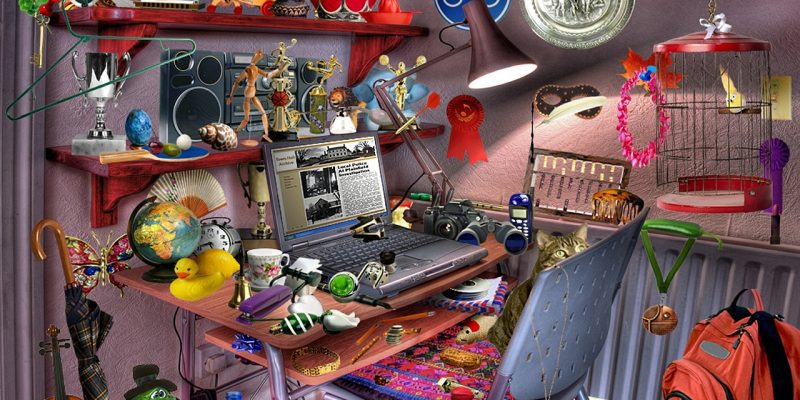I define clutter as a physically messy or untidy state. An environment which makes you unhappy or stressed. This puts you off from making decisions.
How do you know whether you are living in a cluttered house? Maybe the definition below can help.

You can define clutter, by simply looking at an area and determining its purpose.
For example, if you have a garden shed and you keep filling it up with items, eventually you won’t be able to move inside the shed. It has become cluttered.
This then potentially puts you off from buying garden tools for the shed (it’s original purpose), as there is no more room. The only option then is to declutter it, to make room for it’s original purpose.
How clutter starts
An easy example is a dining table
This usually becomes a dumping ground for people with extremely busy schedules, who dump items and rush off to do something else.
The table then stays cluttered. It becomes overwhelming and a chore to tidy it, so it’s just left in a mess.
This has a negative effect to encourage more dumping of items. Therefore feeding into the overwhelming state even more, which encourages more cluttering.
And so the cycle continues.
This becomes stressful and then takes a much larger portion of your time to determine what to do about it.
Define clutter first
Using the example above, a dining room table is designed for your family to sit around and eat dinner.
This statement may seem a bit patronising at first, but it’s not intended that way.
I would start with determining what a particular area is used for. Saying it out loud also helps to re-affirm it in your mind.
The failure here, is not your understanding of what a dining room table is, but your decision making process.
I would determine what the area is used for and how cluttered it is, is the first step in resolving the issue.
Decision making process
You may not have enough time, or your schedule is extremely busy. This is the possible cause of cluttering in your home.
Your life is so busy, your decision making processes are being taken by other more important things.
It doesn’t make you a bad person or you should feel embarrassed. For most people it’s simply that they don’t have the time.
I would recommend you make time, however small, to start chipping away at the clutter.
Take small steps to define clutter
Start with something small, (like a drawer or dining room table) and make the decision of where the items should go.
Don’t overwhelm yourself with too much at first as this can have the opposite effect.
I would give yourself 15-20 minutes per day and start the process of decluttering an area. These small steps will eventually develop into larger steps over time.
Remember, having a cluttered space is simply a decision making problem.
Start with the small steps and take some time back and you will feel better about yourself.
Get help and support
Telling a loved one is an easy way to offload the mental burden and physicality of the work. If loved ones are also living with the clutter, working as a team improves their living conditions as well.
You should download a habit tracking app to your phone and set yourself some time aside each day. This will allow the app to remind you to keep on top of your decluttering each day.
You will be surprised by how much you can do in a day in a short space of time. And how that builds into an effective habit going forward.
You can always reach out if you don’t have the help and support around you.









